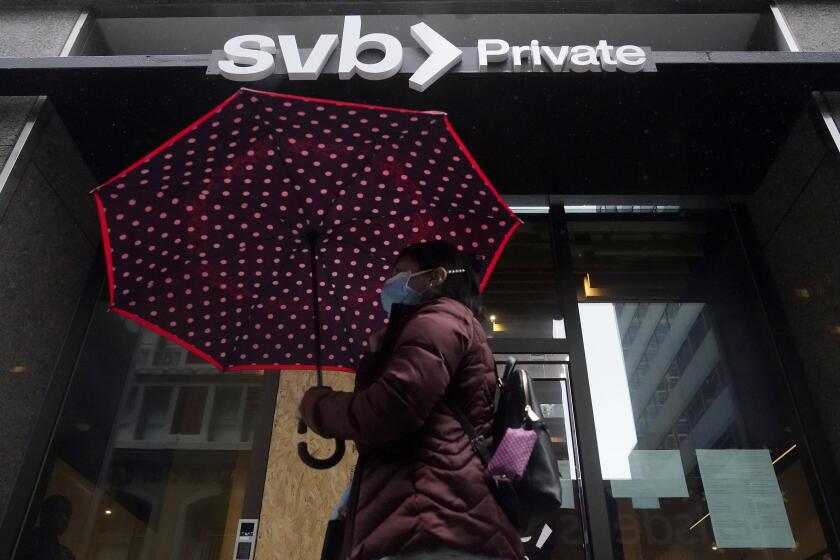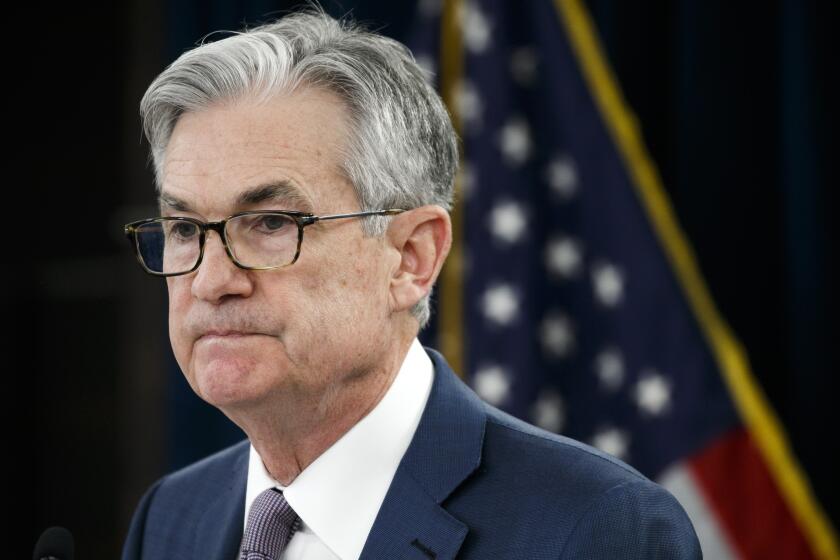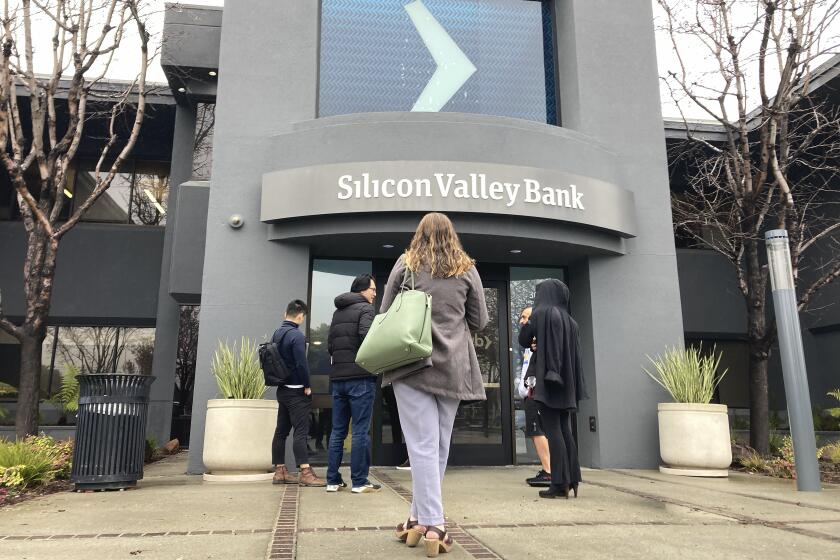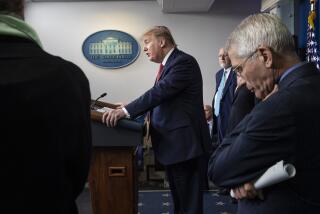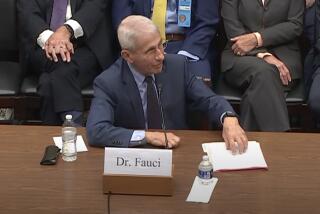U.S. officials signal new rules for banks after SVB, Signature failures

Top U.S. financial officials on Tuesday outlined what’s likely to be the biggest regulatory overhaul of the banking sector in years, in an initiative aimed at addressing underlying issues that contributed to the collapse of Silicon Valley Bank and other U.S. regional lenders.
“I anticipate the need to strengthen capital and liquidity standards” for banks with assets larger than $100 billion, Michael Barr, Federal Reserve vice chair for supervision, said in answering questions at a Senate Banking Committee hearing.
Federal Deposit Insurance Corp. Chairman Martin Gruenberg said, in his testimony to the panel, that the failures of SVB, as Silicon Valley Bank is known, and Signature Bank “demonstrate the implications that banks with assets of $100 billion or more can have for financial stability. The prudential regulation of these institutions merits additional attention, particularly with respect to capital, liquidity and interest-rate risk.”
Fresh regulatory proposals, once formally presented, are set to meet concerted Republican opposition. GOP lawmakers had already put pressure on the Fed before SVB’s collapse to avoid any step up in capital rules that could constrain banks.
Republicans have also laid blame for the failures on a backdrop of high inflation — which they say was caused by the Biden administration’s fiscal stimulus — that forced historically aggressive interest-rate hikes.
The government’s response to the failure of two large banks has already involved hundreds of billions of dollars.
Democrats have rebuffed that analysis, saying regulatory loosening under the Trump administration contributed to the current banking-sector woes.
Among the steps outlined by Barr and Gruenberg in their testimonies:
- The Fed’s stress tests of banks will be enhanced with multiple scenarios to uncover a variety of channels of contagion.
- The Fed will propose “a long-term debt requirement” for big banks that aren’t designated as global systemically important, “so that they have a cushion of loss-absorbing resources,” Barr said.
- Liquidity rules will also be explored to improve resiliency.
- The FDIC will on May 1 lay out options for potential changes to deposit-insurance coverage, which is now capped at $250,000.
- Gruenberg called for “serious attention” to the capital requirements for the securities portfolios of banks with assets over $100 billion.
“We must ensure that our bank regulatory policies and supervision are appropriate for the risks and challenges that banks face today,” Nellie Liang, the Treasury undersecretary for domestic finance, said in her testimony to the committee. She said she looked forward to forthcoming regulatory proposals.
Democratic Sen. Elizabeth Warren specifically asked the three senior officials whether banking rules needed to be strengthened — after regulators had “burned down dozens of safeguards” instituted in the Dodd-Frank legislation crafted after the 2007-09 financial crisis.
Each responded that they agreed with the need for such strengthening.
To fight inflation\, the Fed has historically raised interest rates. But in times of uncertainty, rate hikes could cause an overcorrection — and a recession.
Sen. Katie Britt of Alabama was representative of the Republican response, saying, “That’s what people hate about Washington. We have a crisis and you come in here without knowing whether or not you did your job and you say you want more.”
Sen. Tim Scott, the top Republican on the panel, said
that “warning signs should have been flashing red” for regulators. “Clear as a bell were the warning signs,” he said. “How can you ask Congress for more authority with a straight face.”
Sen. Sherrod Brown, an Ohio Democrat who chairs the panel, also said that questions begin “at the source, with the executives” of the now-failed institutions, and charged them with “hubris, entitlement, greed.”
Fed Chair Jerome H. Powell earlier this month ordered a review of the collapse of SVB, which it supervised, to be led by Barr.
Blame ‘shifting’
“We are evaluating whether application of more stringent standards would have prompted the bank to better manage the risks that led to its failure,” Barr said in his testimony. “We are also assessing whether SVB would have had higher levels of capital and liquidity under those standards, and whether such higher levels of capital and liquidity would have forestalled” its collapse.
President Trump-endorsed rollback of Dodd-Frank’s tougher scrutiny of banks was a significant factor in SVB’s problems. But it wasn’t the only culprit.
Republican Sen. Michael D. Crapo of Idaho said there’s a “blame-shifting game” afoot to assert that SVB’s demise “was a statutory failure.”
He pressed Barr on whether a 2018 law — enacted under former President Trump — that eased some of the Dodd-Frank banking legislation had prevented the Fed from considering the risks being run by SVB. Barr said that that law did give the Fed “substantial discretion.”
The three officials testifying at the panel all reiterated their take that the U.S. banking system as a whole is sound. Liang repeated Treasury Secretary Janet L. Yellen’s remarks last week that regulators stand ready to repeat the extraordinary steps taken after the recent bank failures — when uninsured depositors were made whole.
Covid versus cholera
In one of the liveliest moments in the hearing, GOP Sen. John Kennedy of Louisiana homed in on the Fed’s 2022 stress tests not having included a scenario of a surge in interest rates.
“You stress tested in 2022 for the wrong thing,” he said, quipping that it was like someone going in for a COVID-19 test but instead being checked for cholera.
Barr responded that he wasn’t familiar with the differences between such tests, but highlighted that supervisors had indeed flagged to SVB concerns about its interest-rate risk profile.
Among other issues that were raised in the hearing:
- Concerns among a number of Democrats about share sales and other compensation of SVB executives prior to the bank’s collapse. Gruenberg said that although the FDIC doesn’t have explicit “clawback” authority for a bank of SVB’s size, it will investigate any misconduct and can take measures to address that.
- Republican Steve Daines of Montana pressed Barr on whether he might recommend firing financial supervisors if they’re found to have been negligent, though Barr stopped short of answering that hypothetical.
- Democrat Raphael Warnock of Georgia urged the FDIC to address any overdraft fees charged to depositors who weren’t able to access their money for a time thanks to their bank’s failure.
More to Read
Inside the business of entertainment
The Wide Shot brings you news, analysis and insights on everything from streaming wars to production — and what it all means for the future.
You may occasionally receive promotional content from the Los Angeles Times.
